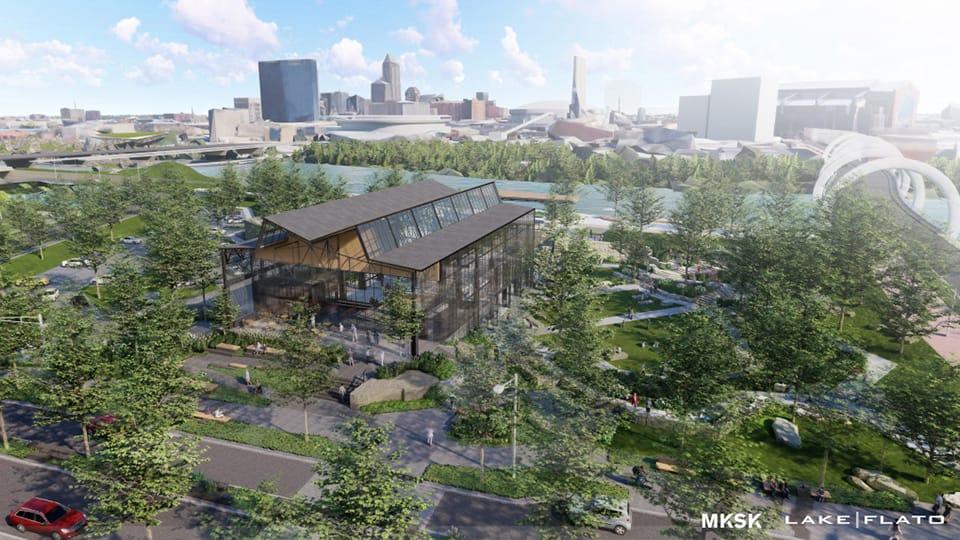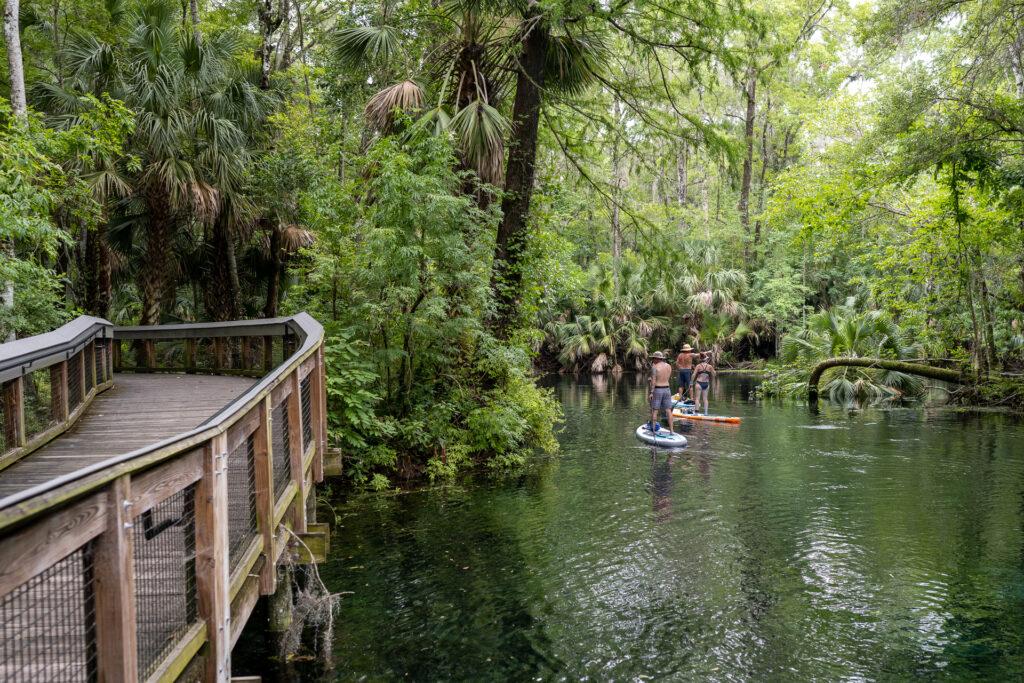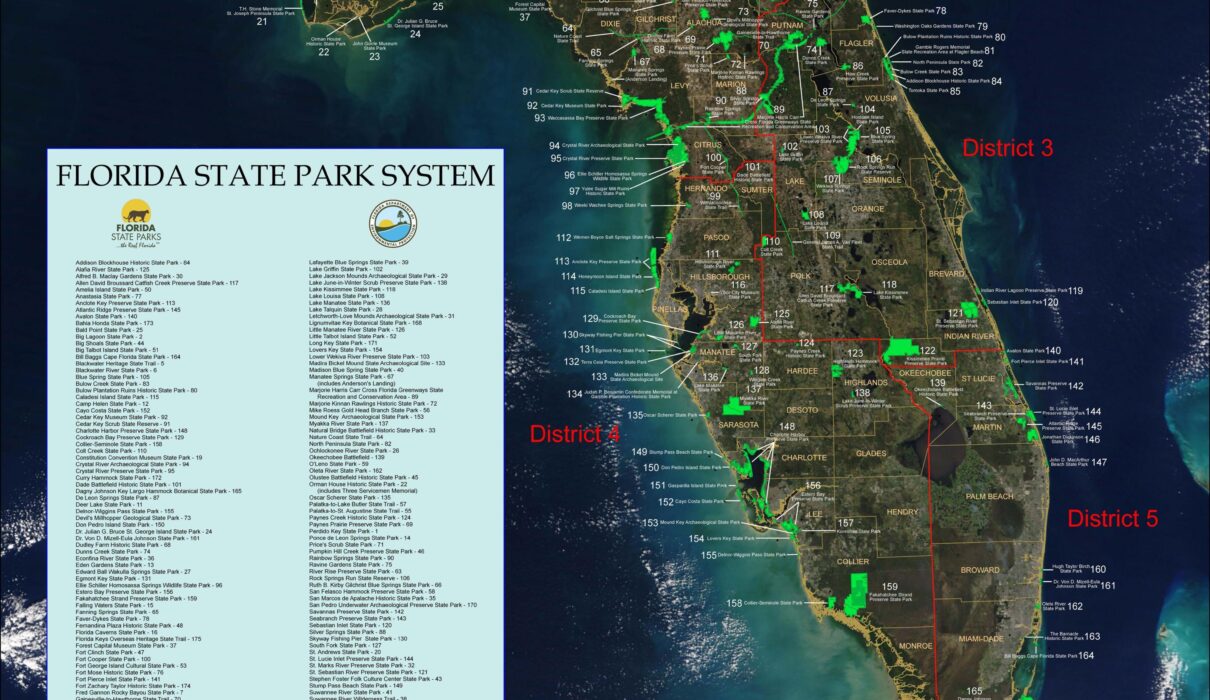As Florida continues to grapple with the delicate balance between development and conservation, a recent legislative proposal has emerged that could significantly impact the future of its cherished state parks. The bill aiming to halt development within these natural sanctuaries has moved forward in the legislative process, sparking discussions about environmental preservation, public access, and the state’s ecological integrity. Advocates and opponents alike are weighing in on the potential repercussions this measure could have on Florida’s diverse landscapes and the communities that rely on them. As this bill advances, it raises essential questions about the priorities of a state renowned for its vibrant ecosystems and the myriad benefits they provide.
Impact of the Proposed Bill on Florida’s Natural Ecosystems
The advancement of the proposed bill signals a pivotal shift in Florida’s approach to conservation, aiming to protect the state’s precious natural ecosystems from unchecked development.If enacted, this legislation will establish stricter regulations on construction activities within state parks, effectively creating a protective buffer for wildlife habitats, wetlands, and unique flora that define Florida’s diverse landscapes. The immediate benefits include:
- Preservation of Biodiversity: Safeguarding habitats for endangered species and maintaining ecological balance.
- Water Quality advancement: Protecting wetlands helps filter pollutants, ensuring cleaner water for both ecosystems and communities.
- Enhanced Recreational Spaces: limiting development maintains the integrity of parks, promoting tourism and outdoor activities that rely on natural beauty.
Moreover, the long-term implications could reshape environmental management practices in Florida, fostering a culture of sustainability. By curbing overdevelopment, the bill supports the restoration of natural areas previously impacted by construction. Evidence suggests that such measures can yield substantial ecological benefits, as illustrated in the following table:
| Environmental Benefit | Impact of Conservation |
|---|---|
| Biodiversity Conservation | increased species populations and healthier ecosystems |
| Improved Air Quality | Reduction in airborne pollutants from minimized development |
| Flood Mitigation | Natural landscapes absorb excess rain, reducing flood risks |

Community Voices: Public Opinion on Development Restrictions
As the bill aimed at halting development in Florida state parks makes its way through the legislative process, public opinion is swirling around the potential implications for both the environment and local economies. Manny residents express concern over the preservation of natural habitats, emphasizing the need to safeguard the unique biodiversity that state parks contribute. Key points from community feedback include:
- Environmental Conservation: A significant number of voices advocate for protecting ecosystems and wildlife habitats.
- Tourism and Recreation: locals highlight the importance of parks for tourism,which plays a crucial role in the state’s economy.
- Community Well-being: Citizens emphasize how green spaces enhance quality of life through recreational opportunities.
Though, some community members voice apprehension regarding potential economic repercussions of strict development restrictions. They argue that careful development can boost local job markets and provide much-needed infrastructure improvements. Discussions revolve around the following areas of concern:
- Job Creation: Proponents for development stress the need for jobs in an economy struggling post-pandemic.
- Balancing Interests: There’s a call for a balanced approach that allows for limited development while preserving natural resources.
- Community input: Residents universally agree on the necessity for local input in the decision-making process to ensure their voices are heard.
| Community Concerns | Support for bill |
|---|---|
| Environmental Impact | High |
| Economic Growth | Moderate |
| Recreational Access | Strong |
| Job Opportunities | Low |

Understanding the Economic Implications of State Park Development
State park development holds significant economic consequences that can reshape local economies and communities. While on one hand, such development can usher in a wave of investment and tourism, it may also led to unintended repercussions. Potential benefits include:
- Increased tourism revenue
- job creation in construction and park services
- Boost to local businesses such as restaurants and shops
However, these opportunities often come at a price. Concerns that arise include:
- Environmental degradation impacting long-term sustainability
- Displacement of local flora and fauna
- Higher costs for local governments to manage increased infrastructure needs
| Aspect | Positive Impact | Negative Impact |
|---|---|---|
| Tourism | Increased visitors | Overcrowding |
| Local Economy | Job creation | Higher living costs |
| Environment | Preservation funds | Habitat loss |

Steps Forward: Recommendations for protecting Florida’s State Parks
To ensure the long-term sustainability of Florida’s state parks and preserve their unique ecosystems, it is essential to implement a comprehensive strategy focusing on conservation and community engagement. first and foremost, increasing public awareness about the value of these natural spaces can definitely help garner support for preservation efforts.Hosting educational programs and workshops can inform citizens about native flora and fauna and the impacts of development, fostering a sense of stewardship among local communities.
additionally, collaboration with local stakeholders is crucial. Forming partnerships with environmental organizations, government agencies, and community groups can drive meaningful change. Initiatives could include volunteer-led clean-up days, habitat restoration projects, and the creation of conservation easements. By incentivizing enduring practices and providing resources for park management, stakeholders can ensure that Florida’s state parks remain vibrant and accessible for future generations.
To Wrap It up
the advancement of the bill to halt development at Florida state parks marks a significant moment in the ongoing dialogue about environmental protection and land conservation. As lawmakers continue to focus on preserving these cherished natural spaces for future generations, it’s essential for citizens to stay informed and engaged with the legislative process. The outcomes of such decisions can have lasting impacts on biodiversity, recreation, and the overall health of Florida’s unique ecosystems. As we await further developments, let’s celebrate the importance of our state parks and advocate for policies that safeguard their beauty and integrity.

